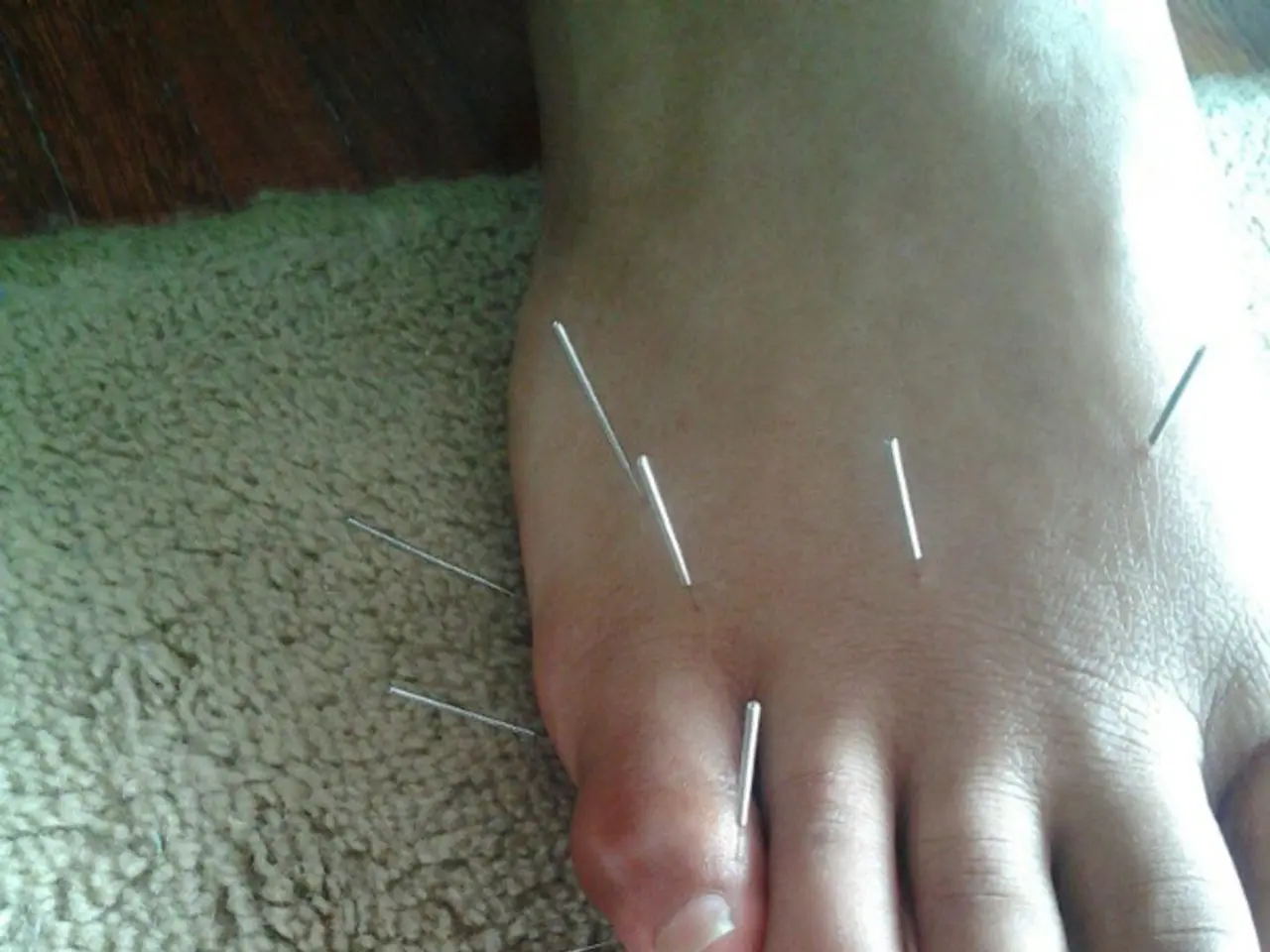Understanding the Cause of Limb Numbness: A Look into the Mysteries of Asleep Limbs
Limb Numbness and Paresthesia: Understanding the Causes and Implications
Limb numbness and the tingling sensation known as paresthesia can be a concerning health issue for many people. These sensations are often caused by nerve compression, damage, or impaired function.
While temporary numbness, such as the "falling asleep" sensation, is usually not a cause for concern, persistent or recurrent numbness and paresthesia may indicate underlying health problems.
Common causes of these symptoms include peripheral neuropathy, nerve compression syndromes, autoimmune disorders, circulatory issues, and other neurological diseases.
Peripheral Neuropathy is a common cause of limb numbness and paresthesia. Conditions like diabetes, infections (such as HIV, hepatitis, and Lyme disease), autoimmune diseases (like lupus, rheumatoid arthritis, and Sjögren’s syndrome), toxins (such as alcohol and heavy metals), vitamin B12 deficiency, chemotherapy, or trauma can lead to damage of the peripheral nerves.
Nerve Compression Syndromes, like carpal tunnel syndrome, can cause numbness and tingling in the hand and fingers. This condition occurs when the median nerve in the wrist is compressed.
Autoimmune Disorders such as Guillain-Barré syndrome can cause the immune system to attack nerves, leading to rapidly progressing numbness and weakness. This condition requires urgent medical care.
Circulatory Issues such as peripheral artery disease or other vascular problems can reduce blood flow to nerves, causing numbness, especially in the feet.
Other Neurological Diseases like multiple sclerosis and cervical spine problems can also manifest with paresthesia.
The University of Rochester Medical Center explains that the nervous system tends to become hyperactive as nerves regain normal function after a blockage is removed. Conversely, too much compression on a nerve can lead to paralysis, as no signals are getting through.
Toxins like lead or mercury, certain medications, and numerous diseases, including those affecting the liver, kidney, or thyroid, can also cause neuropathy. Vitamin B12 deficiency or other vitamin deficiencies may be to blame for neuropathy.
In some cases, the cause of neuropathy remains unknown. Nearly a third of cases have no clear cause.
Robert Shmerling, former clinical chief of the division of rheumatology at Beth Israel Deaconess Medical Center and senior faculty editor at Harvard Health Publishing, points out that the misconception that a lack of blood flow causes numbness in limbs is incorrect. Instead, the numb feeling in limbs, known as paresthesia, is caused by nerves getting squished due to one's position.
Prompt evaluation by a healthcare provider is important for persistent symptoms to determine the cause and initiate appropriate treatment. Whether limb numbness and paresthesia are signs of a serious health issue depends on their characteristics. Chronic, progressive, or accompanied by weakness, pain, or other neurological symptoms may indicate serious underlying conditions such as diabetes-related neuropathy, autoimmune diseases, infections, or neurological disorders.
- Biology enlightens us on the root cause of limb numbness and paresthesia, often linked to nerve compression, damage, or impaired function.
- Science offers various therapies and treatments for addressing these health issues, such as addressing nutrient deficiencies, like vitamin B12.
- Workplace-wellness programs can educate employees about the signs of neurological conditions, such as limb numbness and paresthesia.
- Medical-conditions, like peripheral neuropathy and nerve compression syndromes, are common causes of these symptoms, warranting prompt medical evaluation.
- Digestive-health can impact nerve function, as certain digestive conditions can lead to nutrient deficiencies, which can cause neuropathy.
- Eye-health is essential, as disorders like multiple sclerosis can affect vision, in addition to causing paresthesia.
- Hearing impairment, a common symptom in neurological disorders, can be identified early through regular check-ups, allowing for timely intervention.
- Mental-health conditions, such as anxiety and depression, can exacerbate paresthesia, necessitating comprehensive treatment plans that address both physical and mental health.
- Skin-care products like CBD oil may alleviate skin conditions that cause or are caused by nerve damage, providing an essential aspect of overall health and wellness, in conjunction with fitness and exercise and proper nutrition.





